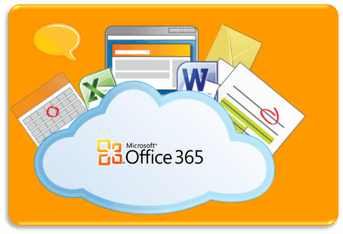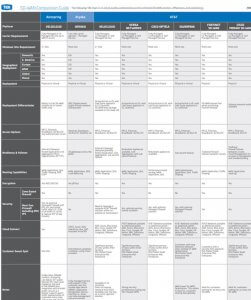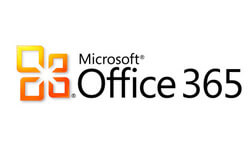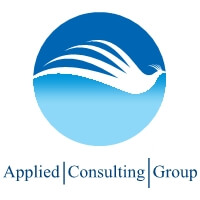


Business Insider: There’s a reason Nigerian scammers are so obvious in their emails
By Libby Kane at Business Insider (reprinted)
At this point, disenfranchised “Nigerian royalty” asking for money through a poorly worded email is the ultimate cliche of internet scams.
So why does it still exist?
According to new book “Think Like A Freak,” a follow-up to the popular “Freakonomics” by Steven D. Levitt and Stephen J. Dubner, the scam’s obviousness is its chief selling point.
The book refers to research from Microsoft Research computer scientist Cormac Herley, who looked at Nigerian scams — technically called advance-fee fraud — from the point of view of the scammer. How, he wondered, were scammers who never sent an email free of typos earning enough money for the United States Secret Service to establish its own task force to fight them?
In fact, those typos are a key part of the scam.
Levitt and Dubner explain the genius behind such an obvious scam in terms of “false positives,” referring to email recipients who engage with the scammers but don’t ultimately pay. Reaching out to scores of potential victims isn’t much work, thanks to the ease of email, but with each reply from a gullible target, the scammers are required to put forth a little more effort.
Therefore, it’s in the scammers’ best interest to minimize the number of false positives who cost them effort but never send them cash. By sending an initial email that’s obvious in its shortcomings, the scammers are isolating the most gullible targets. If you trash their email, that’s fine. They don’t want you, someone from whom there’s virtually no chance of receiving any money. They want people who, faced with a ridiculous email, still don’t recognize its illegitimacy.
As Herley tells the book’s authors, “Anybody who doesn’t fall off their chair laughing is exactly who they want to talk to.”
While no one is recommending you engage with scammers, Herley tells Levitt and Dubner that the best defense against these crooks is to game their system and waste their time. Ideally, he says, this would take the form of a chatbot that engages with scammers, to make them put in the effort toward the false positives they’re trying to avoid.

BETTER Options for Utility Customers: Response to Today’s Press of Atlantic City Article
For those who don’t follow South Jersey News, Today’s Article outlined the options for utility customers who find errors in their utility bills.
The article outlines the difficulty in dealing with a utility company that can easily get upwards of 2000 complaints a day.
Stefanie Brand, director of New Jersey’s Division of Rate Counsel, recommends that customers record conversations with a company’s customer service to ensure that proof of a conversation is available. “I would strongly recommend taking careful notes of exactly who you are speaking with and the details of the conversation, and if you have to go to the board, then you can provide that information. You want to know your customer service rep, record what they’re saying, and if you’re unable to resolve it with the company, you have the right to file with the BPU.”
It’s a strenuous process. Especially for businesses who, in addition to billing errors, are often in the wrong rate group all together with no knowledge to know the difference. Luckily there is a better way. If you believe you may be facing billing errors, contact Applied Utility Auditors today and let them deal with the utility’s bureaucracy

5 Questions Every CEO Should Ask About Cybersecurity
- Is your board of directors fully engaged in cyber-security?
According to a recent whitepaper by AT&T, 75% of corporate boards are not involved in active oversight of cyber-security despite the threat it poses to brand equity, employees, and customers.
- When did you and your board review your last risk assessment?
Your IT department should be consistently and regularly performing risk assessments with recommendations for upper management. These risk assessments should not be taken lightly and should include oversight from the biggest decision makers in the company.
- What makes you a target for attacks?
One of the biggest errors companies make is thinking their company will be passed up for a “more lucrative” fish. Cyber attacks come big and small – and for a variety of reasons. Do you have access to personal financial information? Medical records? Is your industry controversial in any way making you a target for “hacktivists”? It’s best to assess what value attacking your company has and protect that information specifically.
- What data is leaving your company and is it secure?
The economics of cyber corporate espionage are clear. It’s much easier to steal proprietary information than it is to do research and development on one’s own. Foreign nations themselves have been known to fund the hacking of corporations in order to give industry in their countries a let up. Who has access to your proprietary information and how are they handling that information? - How have I provided my security organization with all the tools and resources they need to help prevent a security breach?
This is an industry that changes almost overnight. Last year’s technology is not likely to help you – and your risk assessment team should also be regularly reviewing the latest protective measures available. The longer a security method is used, the more time the hackers have to compromise its integrity. Are you sure that you’ve given your IT department the tools to keep one step ahead?

Canada and US Face Similar Utility Bill Challenges
Jill MacCannell, public relations coordinator for Poteck Power Corporation, the company responsible for retrieving the large lump sums of money throughout the province said this phenomenon of “overcharging” utility customers is presently occurring “all over Ontario.”
Locals throughout that region have been appalled at the types of customers falling prey to the overcharges – including many nursing homes and non-profit organizations.
Had a private Utility Bill Auditing Company not reached out to the organization and encouraged them to examine their utilities, they would never have found the error and could have been paying those high rates for years.
Don’t want to pay to find errors that might not be there? Applied Utility Auditors offers bill auditing on contingency.

BlackBerry Bouncing Back? Winner of the 2016 Red Dot Award for Product Design.
PRIV by BlackBerry Wins Red Dot Award for Product Design 2016!
PRIV demonstrated its design prowess in one of the most important competitions dedicated to product design, Red Dot Product Design 2016. Red Dot awarded PRIV the Product Design award for high design quality, where only outstanding products were recognized for their achievements. PRIV was selected from a record number of 5,214 products from 57 nations, where 41 jury members designated the awards.
Blackberry has consistently been recognized by Red Dot for its outstanding work in design. In 2015, the BlackBerry Passport won Red Dot: Best of the Best for its innovative design. In 2014 the BlackBerry Q10 won a Red Dot award and again in 2013 with the BlackBerry Z10. In 2013 Porsche Design won in the “Best of the Best” category for Porsche Design P’9981 smartphone.
Danish fashion designer David Andersen was on-site for this year’s jury session and said: “It is inspiring to see designs from all over the world and to follow the development. It is a pleasure to be a juror in a group of such competent designers who are looking at so many fantastic products and discussing each one individually.”
“Our BlackBerry Design Team is extremely excited to be recognized by the prestigious Red Dot, given the time and energy spent on developing this next level design for BlackBerry,” said Scott Wenger, Global Head of BlackBerry Devices Design. “PRIV is an innovative device encompassing a re-imagined form factor while also offering security standards on an Android device that many in the industry never thought would be possible. These design features and security enhancements set PRIV apart from the pack.”
We are so impressed and thankful for the brilliant designers, engineers, and overall team who came together to help us develop PRIV! Giant congratulations to the BlackBerry Design team!
